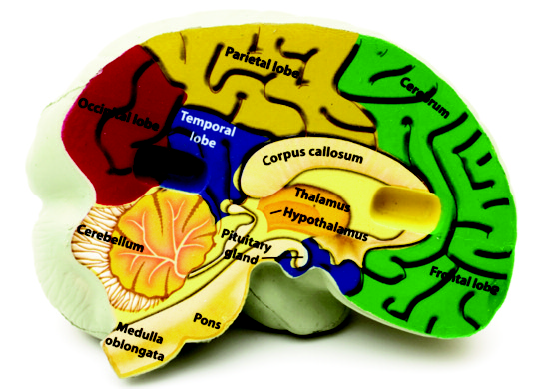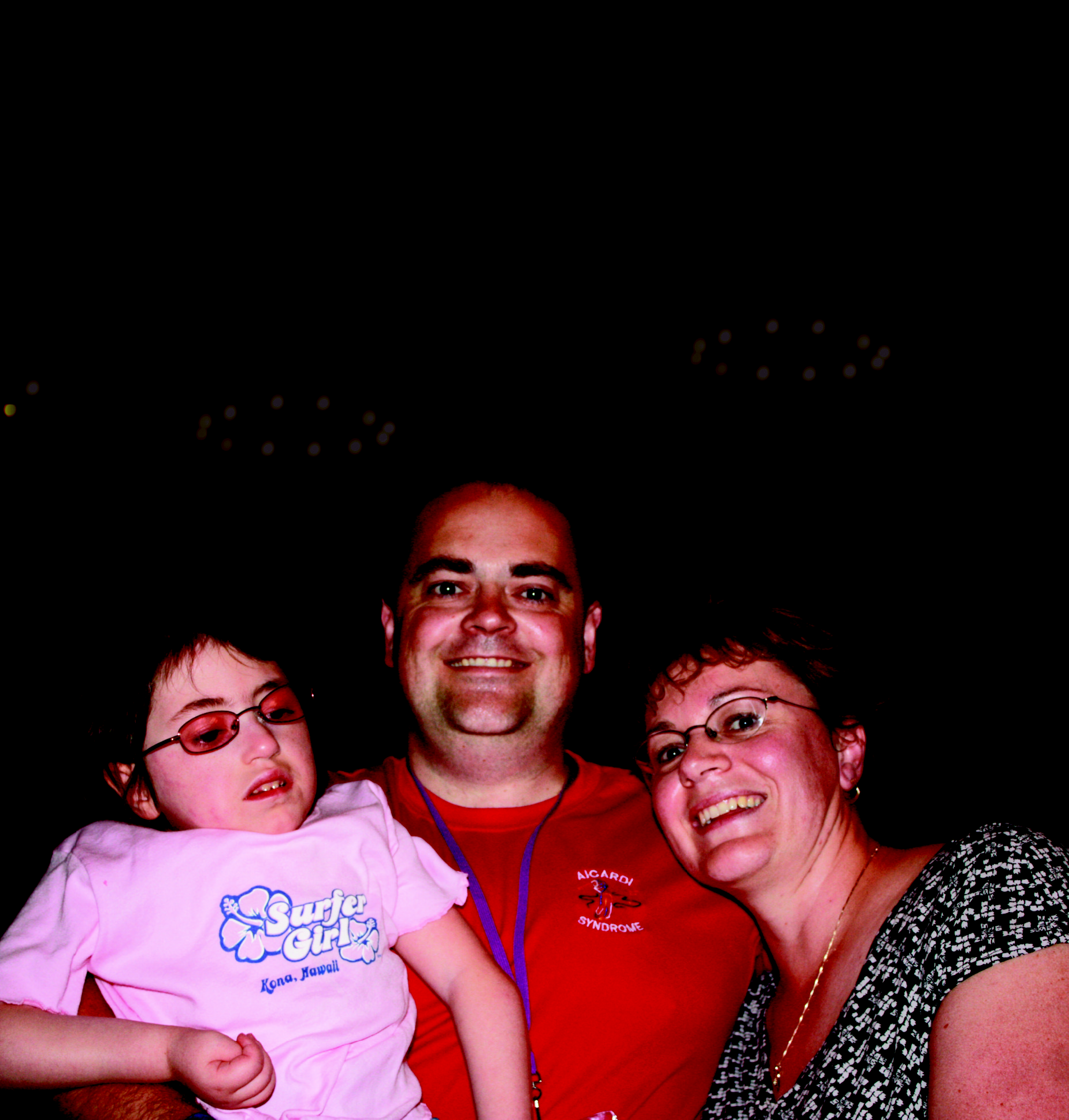
Making Connections When Your Child Has a Rare Disorder
BY MICHELE ERTL-ROSNER
Parenting a child who has special needs can feel lonely and isolating at times. You and your family are on a journey that likely looks and feels very different than other families around you. It may feel like extended family and friends cannot fully relate to the challenges you face.
When your child is diagnosed with a rare disorder, you may find that many medical professionals are not familiar with your child's diagnosis. At times, it can feel like you have nowhere to turn for information and understanding, but there are supportive connections and resources available.
While raising a child with a rare disorder can be a journey with unique challenges, we don't always have to travel alone.
Fortunately, there are various opportunities to make both one-toone and group connections, and technology has made it easier to find and connect with others who have many of the same concerns as you.
Here are some strategies for finding other parents who have a child with the same diagnosis, as well as ideas for making the most of those invaluable connections.
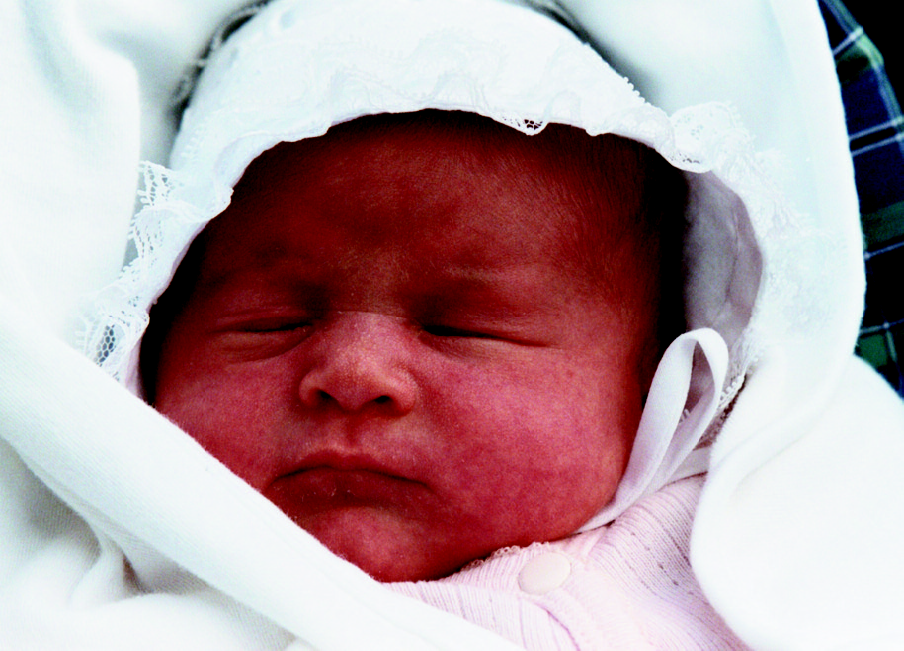
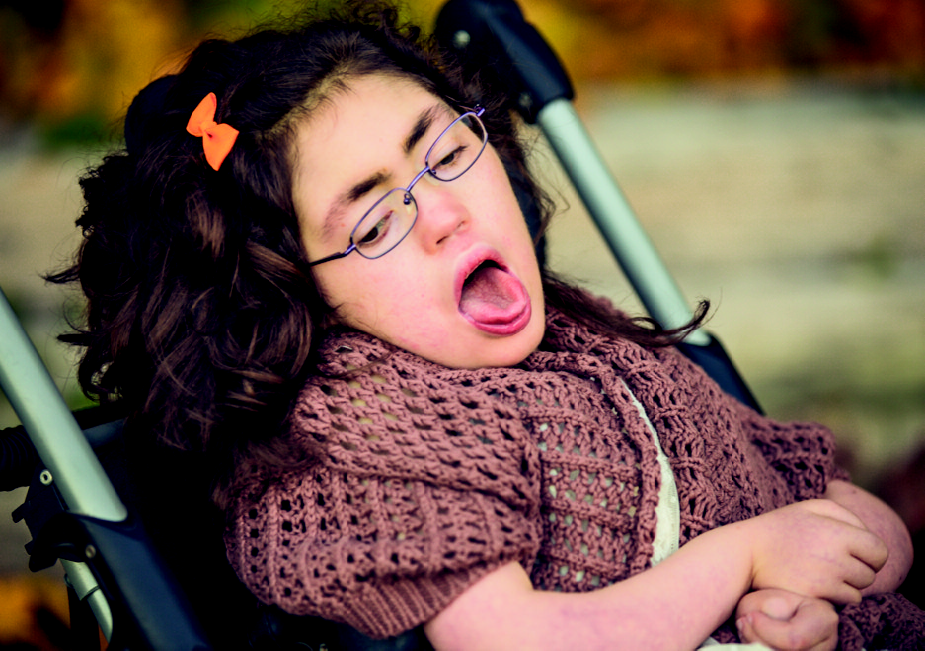
RARE BEAUTY: (Above left) Julia was diagnosed with Aicardi syndrome as a newborn in 2002; (Above left) Julia now, as a young adult. (Opposite page) Julia with her parents, Matt and Michele, enjoying a dance party at the 2008 Aicardi Family Conference.
Creating a Bridge with Social Media. While Aicardi syndrome can be a difficult diagnosis, it comes with an amazing group of parents who are tightly connected online. There is a very active Facebook group that provides support and advice. This diverse group is comprised of parents and caregivers from all over the world, with girls ranging in age, abilities and medical challenges. Everyone in the group is united by our child's diagnosis, and a wealth of insights, ideas and support are shared each and every day. I have often turned to this group with pressing questions and nagging worries; there is just no substitute for the insights of another parent who has been through the same situation you are facing.
With any online group, some oversight such as group guidelines and moderators can help ensure the dynamics of the group remain inclusive and supportive rather than divisive and judgmental. Some specific ground rules to consider include:
No requests for monetary donations o No political or religious comments o Parents and custodial caregivers only It is also important to note that everyone reacts to a difficult diagnosis differently. Some people immediately start making connections. Others are shellshocked and need some time to process their situation. When your child has just been diagnosed, seeing challenges and obstacles that are years in the future, or might never be a part of your child's story, can be more than some families are prepared to handle. If that is the place you are in your journey, consider using the technology options to hide the regular notifications and updates from whole group, and instead rely on the group as a resource to get answers to your specific questions.
Conference Meets Family Reunion Not only are the Aicardi families connected online, but the group has created an opportunity for an in-person gathering every other year. What started as a get together with just a few families has grown into biennial conference with about 100 families attending. This event is part educational conference and part family reunion. Families feel a sense of comfort and acceptance, where things like seizures, tracheostomies, wheelchairs and all types of medical equipment are the norm rather than an oddity. A lot of work happens behind the scenes to hold a successful event. Here are some factors that make the Aicardi Family Conference a success:
• Early announcement of date and location: The date and location for the July 2018 Aicardi Family Conference were announced well over a year ago, giving families plenty of time to budget for travel, plan time off from work and make travel arrangements, which can be more complicated when you need to bring specialized equipment and supplies, as well as travel with a child in a wheelchair. •Consideration for an accommodating location: Holding the event in the middle of the country rather than on one of the coasts helps minimize travel distances. Equally important is choosing a hotel/conference center that has the ability and willingness to go above and beyond for conference attendees who may have mobility challenges or require other special accommodations during their stay. • Educational and social opportunities: Provide attendees with the chance to both learn and connect. Tap into the group's network to bring in doctors, therapists, pharmacists and other professionals who can share information and answer questions about common concerns associated with the rare disorder.
Don't forget to give attendees time to interact with one another; group dinners, dances, and fundraising raffles create a spirit of community and camaraderie. •
Child care during educational sessions: Consider providing child care during the sessions, especially if you can find volunteer caregivers who have experience providing the type of care that might be needed. For the Aicardi Family Conference, caregivers include older siblings, aunts, uncles, etc. who have cared for a child with Aicardi syndrome before. Parents who have a child with special needs appreciate the opportunity to give their full attention to learning during conference, and they are still nearby and accessible if their child needs them.
Making the Perfect Match While connecting with a group can be a valuable resource, you may also be interested in making individual connections that can provide a more personal relationship. Parent to Parent USA (p2pusa.org) is an organization that makes one-to-one matches between a trained volunteer support parent and a parent seeking support. How does it work? I recently attended a day-long training session to become a support parent, and I am now part of the database of other support parents. In my state, the Parent to Parent trainer also does the matching. Connections can be based on the child's diagnosis, which in my case would be another parent who has a child with Aicardi syndrome. Matches can also be based on a specific medical condition, such as intractable epilepsy or a vision impairment with multiple disabilities in my situation. Once the match is made, the support parent reaches out
to the referred parent via a series of phone calls. Parent to Parent USA has programs in 37 states. If your state does not have a program, you can contact a neighboring state for help.
It's Not Rare to Be Rare: Connecting to Have a Louder Voice According to the Global Genes website (globalgenes.org/who-we-are-2), rare diseases affect 1 in 10 Americans, or 30 million people in the United States and 350 million people globally. Over 7,000 distinct rare diseases exist, and the National Institutes of Health estimates that 50% of people affected by rare diseases are children. Global Genes is working to connect, inspire and empower those impacted by rare diseases so that they can be advocates and activists. That advocacy is desperately needed: only 15% of rare diseases have organizations or foundations providing support or driving research, and it is estimated that 95% of all rare diseases do not have a single FDA-approved drug treatment. For families interested in learning about how they can be a voice for their child with a rare disorder, as well as joining their voice with others, Global Genes offers of wealth of resources. Their website includes a complete library of toolkits (globalgenes.org/toolkits) provide information on topics ranging from creating a support group to navigating insurance to advocating for your child in their school.
You are not alone; rare is everywhere. Whether you are interested in joining an online group, making one-to-one connections or becoming an advocate for your child, technology can make it easier to find and build those relationships. If possible, do not miss out on in-person opportunities to build a deeper connection with others who are facing many of the same challenges you are. Face-to-face gatherings and conferences can provide invaluable information, as well as the foundation for friendships that will carry you through the most difficult and frustrating situations you come up against.•
ABOUT THE AUTHOR: Michele Rosner is the mother of four children, including a teenage daughter with multiple disabilities and complex medical challenges. She has worked as a marketing professional for more than 20 years. With a desire to help others overcome adversity and find more joy in the journey of raising a child with disabilities, she launched Different Kind of Special (differentkindofspecial.com). This online community provides resources and support for families who have a child with special needs.
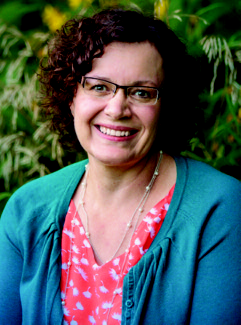
JULIA'S DIAGNOSIS : ABOUT AICARDI SYNDROME Shortly after her birth, our daughter Julia was diagnosed with Aicardi syndrome. This rare disorder occurs almost exclusively in females and is characterized by the partial or complete absence of a key brain structure called the corpus callosum, the presence of retinal abnormalities, and seizures in the form of infantile spasms. While learning about this diagnosis and the impact it would have on our daughter's life was nearly overwhelming for us in the beginning, we were lucky to get a diagnosis so quickly. Sixteen years ago, fewer doctors were aware of Aicardi syndrome, and children with the condition could be undiagnosed for months or even years. Having a diagnosis helped us determine potential treatments and enabled us to connect with other families facing similar circumstances. Those connections made the diagnosis feel less overwhelming; we could see and learn firsthand from families who were successfully navigating the journey we were now on.
